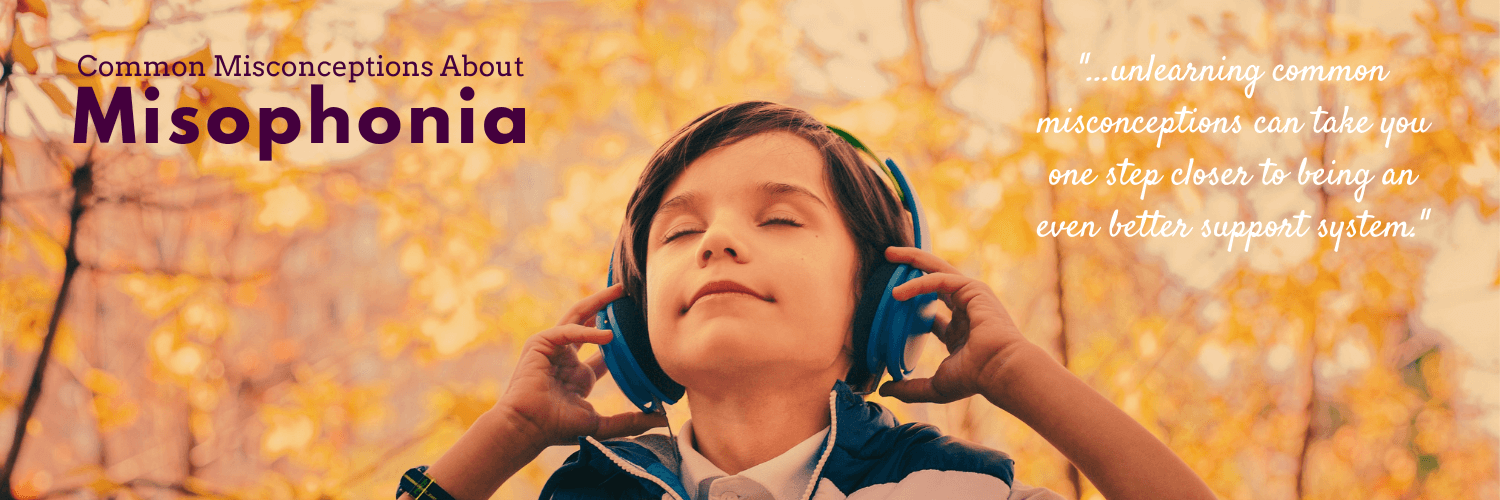Misconceptions of Misophonia
Misophonia is often misunderstood, but a little bit of learning and understanding can go a long way.
According to Zachary Rosenthal from Duke University, up to 20% of the population may display symptoms of misophonia. But despite this sizable figure, misophonia remains one of the most misunderstood medical disorders. One of the possible reasons behind this is the lack of consistent and reliable research about this condition. Because of this, people assume that misophonia is rare, and many more people make false conclusions about what misophonia really is.
However, the actual prevalence of misophonia just means that it's more important than ever that we try to understand the reality of this condition and how it affects the people around us. As such, in this article, we will discuss and debunk three misconceptions about misophonia.
Misconception 1: People with misophonia are just exaggerating
Although anyone can be bothered by annoying sounds like chewing and feet tapping, these seemingly mundane sounds are much more aggravating for people with misophonia. This is because misophonia is not simply a trivial hatred of sound but a sensory-based disorder that makes individuals more sensitive to specific noises than others.
Based on the same article from Rosenthal, individuals with misophonia experience an abnormal fight-or-flight response to certain noises because their minds interpret the sound as toxic or harmful. As a result, they can experience emotional and physical sensations such as anger, nervousness, increased heart rate, and even a sense of panic upon hearing triggering sounds. This emphasizes how misophonia is much more than just an overreaction towards sounds.
Misconception 2: Misophonia can be solved with traditional psychiatric therapy
Unlike many psychiatric disorders, exposure therapy may not be as effective in solving misophonia because it doesn't necessarily fall under this bracket. For example, the popular health podcast by Jen Kirkman called Anxiety Bites talked about how misophonia is a multi-disciplinary problem. It’s because it may intersect with the field of psychiatry, psychology, neurology, and even occupational therapy. That’s why new teams of researchers and medical professionals are necessary since solving the problem from one perspective alone is not enough.
Moreover, contrary to popular belief, misophonia is not similar to obsessive-compulsive disorder (OCD). This is why the podcast also highlighted how the treatment for misophonia should not be the same as existing treatments for OCD. It just shows that research on the diagnosis and medication of misophonia should be an ongoing endeavor since the explanation for the condition remains obscure.
Misconception 3: Misophonia triggers are the same for everyone
Another misconception is that all individuals with misophonia are affected by the same triggers. This is inaccurate since sound triggers can vary widely from one person to another. Even though mouth sounds are some of the most common triggers, researchers from Ohio State University confirmed that misophonia is more than just hating the sound of chewing. Their findings showed that patterns of brain connectivity were different in people with misophonia. Ultimately, this demonstrates that misophonia can manifest in different ways. This is why personal projects like triggers journals are helpful. In our article on ‘Why You Should Keep A Misophonia Trigger Journal’, we shared that having a diary can help keep track of individual sound triggers and note ways to avoid them.
Although misophonia remains a mystery to many, there are strides being made to further its diagnosis and treatment. For those with loved ones with this condition, unlearning common misconceptions can take you one step closer to being an even better support system.
—
Written by Violet Willow for soquiet.org


